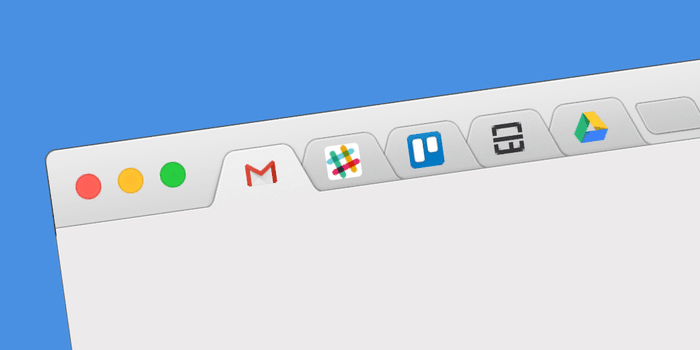
Our goal here at Paperpile is to increase productivity of researchers. We build software that makes it easier to organize and write academic papers.
We’ve often wondered what else we can do to help researchers work smarter and be more productive. The answer, we found, is surprisingly simple. It’s all about choosing the right tools. So today, we’re launching a 5-part blog post series introducing a hand-picked selection of productivity tools that all researchers need to know.
Chances are you already know some of these tools. Chances are also that you know somebody who knows none of them… So please share and help spread the word.
We don’t need “X for researchers” we first need X.
Thomas Crouzier maintains a comprehensive list of cloud software for researchers on his blog “Connected Researchers”. He also had an interesting piece in Trends in Biochemical Sciences about “Researchers in the cloud”. If you haven’t seen it, you should definitely make time to read it.
Jeroen Bosman and Bianca Kramer from the University of Utrecht have collected an impressive list of hundreds of tools for researchers. And for the students out there, Matt Might has documented a very thorough system for maximizing your time in between writing a dissertation, looking for work, and a multitude of other priorities.
Here, I want to look at research productivity from a different angle. Looking back to my own time as a researcher running a startup now, I’ve made a few observations:
Most everyday tasks of a researcher are not fundamentally different than in other business or organization. Yet modern productivity tools are not so common among academics.
The biggest gains in productivity most like does not come from special software for researchers but solving common every-day tasks more efficiently. Just think about it. If you had to choose, what would you give up: ResearchGate or Google Calendar?
It’s not about “cloud” or other buzzwords: it’s about good software. I was part of a multi-national research consortium. At some point I was told I should put my data “to the cloud”. I asked “What does that mean exactly?”. “Upload it to the FTP server, they call it cloud now”. Cloud by itself does not mean innovation, usability or good software. At least this is not what comes to my mind when I use FTP… But if “cloud” characteristics like being web-based, multi-device and collaborative are combined with true innovation and usability, “cloud” can be a real game changer. These are the tools we should focus on.
If This Is Your Workflow You Are Doing It Wrong
Everyday tasks are about communicating with your colleagues and collaborators, sharing and discussing documents, assigning tasks, tracking progress. I’ve worked in three different research groups and the tool of choice for all of these tasks was email. A typical project ends up in endless email threads and dozens of attachments sent back and forth. It’s an unstructured mess and precious time is wasted dealing with it. If that sounds familiar, you should read on.

Our Top Lists of Tools for research productivity
I’ve made the switch from a full time researcher to running a company. We are a distributed team in three countries and we run our business entirely in the cloud. After experimenting with various tools, we settled on a handful of services, many of which I did not know or did not use during my time as researcher.
I wish I had. We barely use email internally anymore and the picture has changed to something like this:

In the next four weeks we will introduce these tools with a special focus on how they can be used to improve efficiency and productivity in research groups.
Part 1: Introduction: Research Productivity: How Business Apps Make the Best Tools for Researchers
Part 2: Use Trello to organize everything: hire your next lab-member, organize a meeting and get your collaborative projects finished on time.
Part 3: Bring order to your Gmail inbox with Streak. Using the practical example of editing a book with many contributors, we show how you can keep track of messages, attachments and deadlines.
Part 4: Communicate more efficiently with Slack and never send an internal email within your research group again.
Part 5: Keep all your documents organized in one place and collaborate in real-time with Google Drive.


